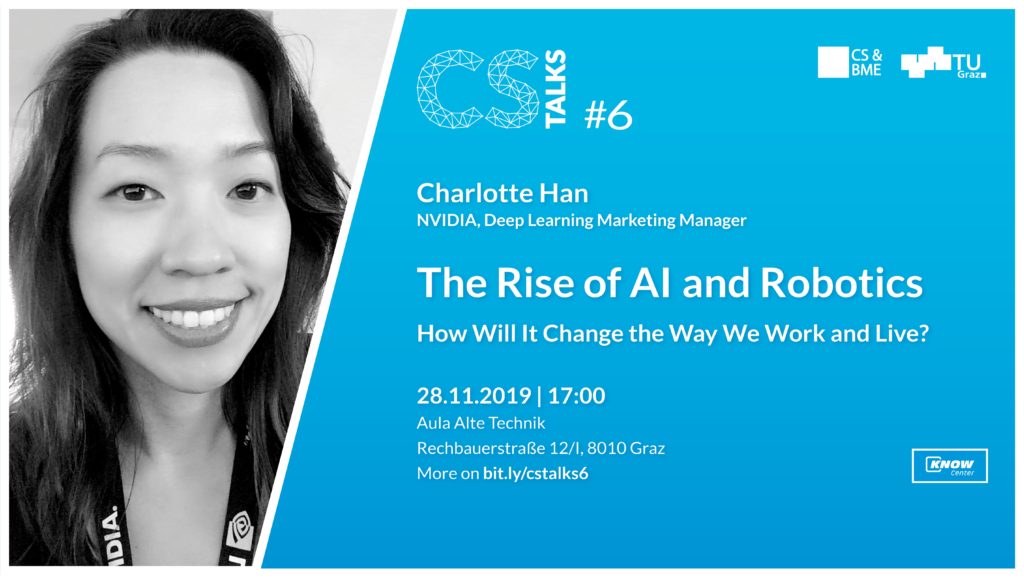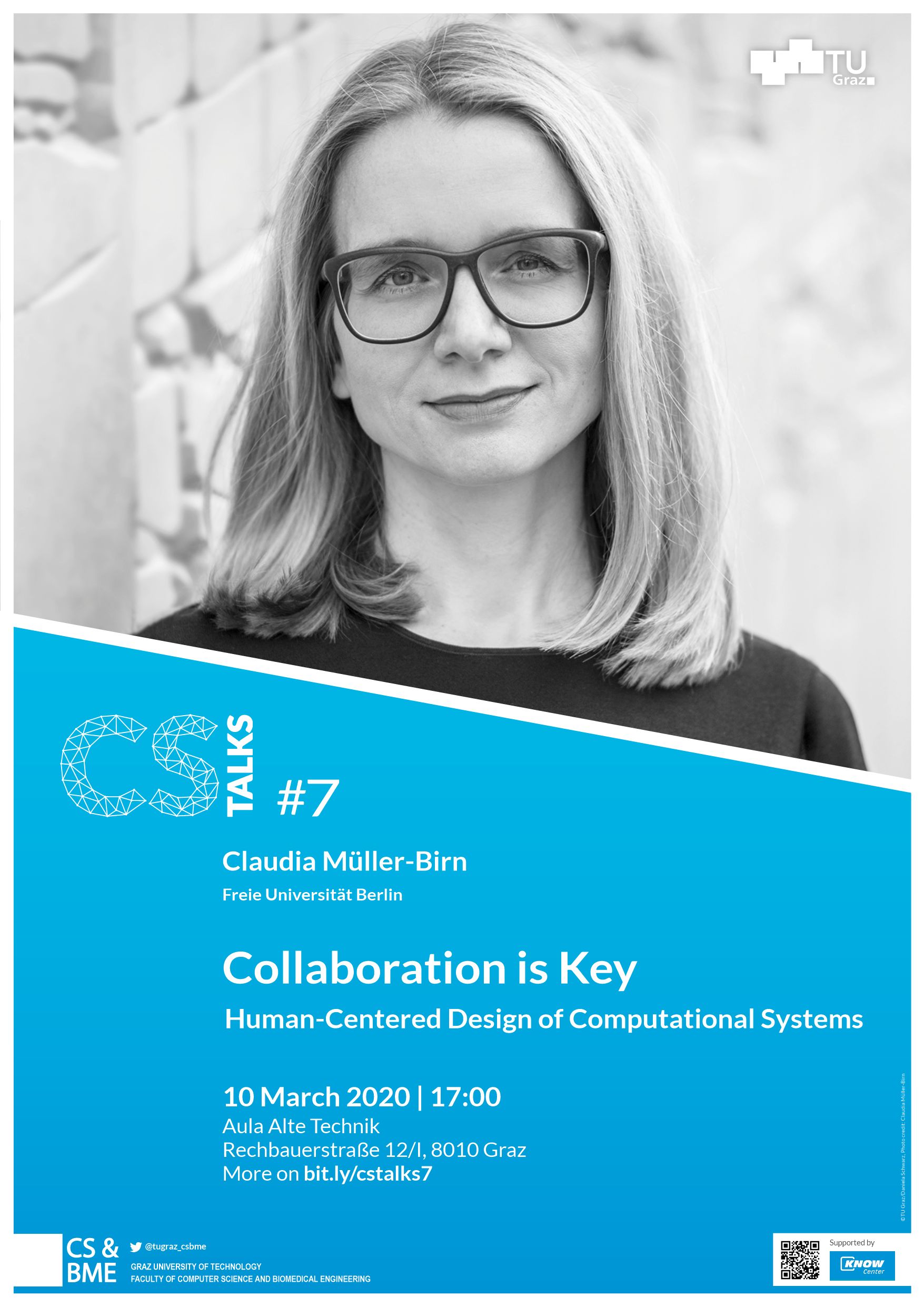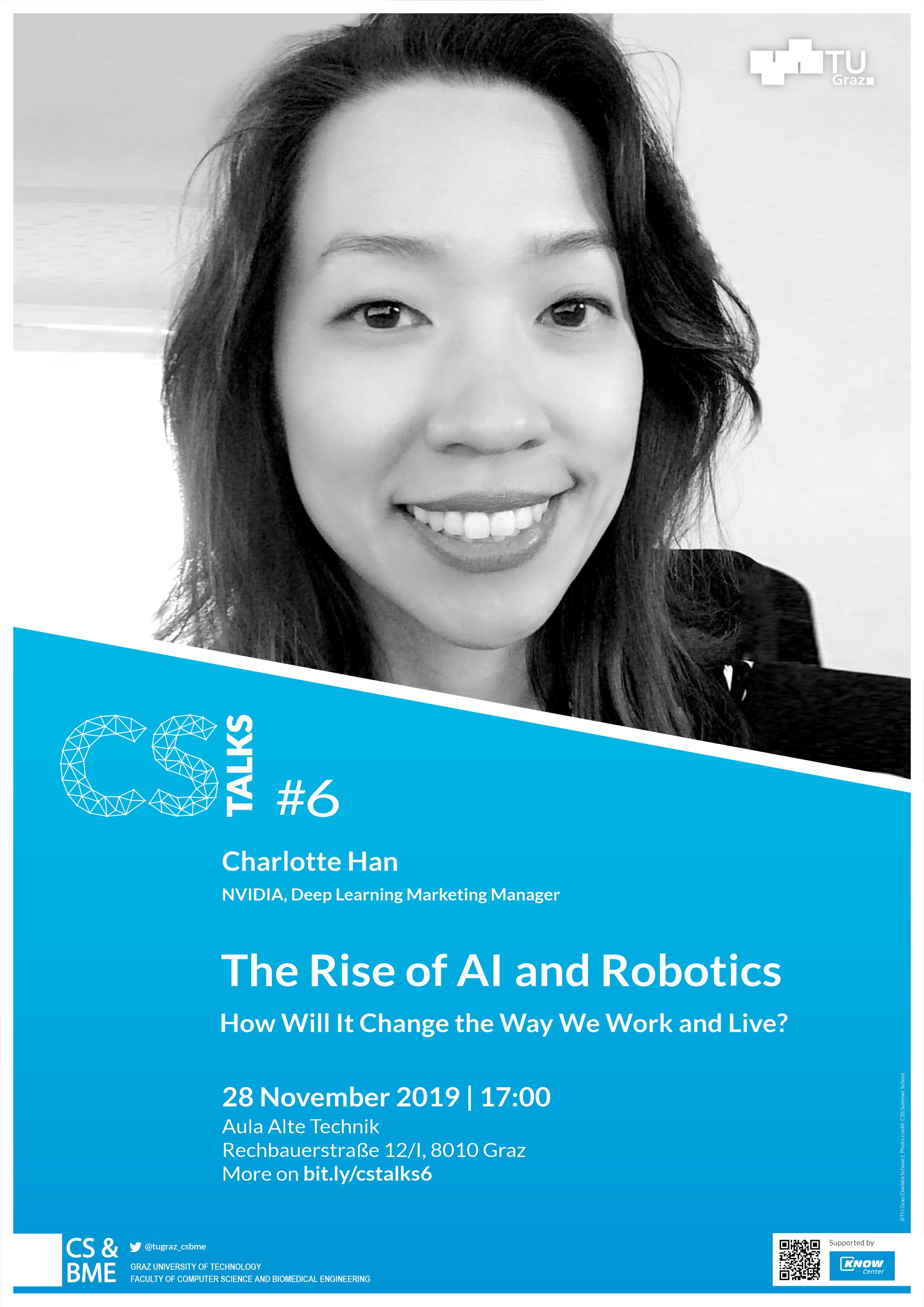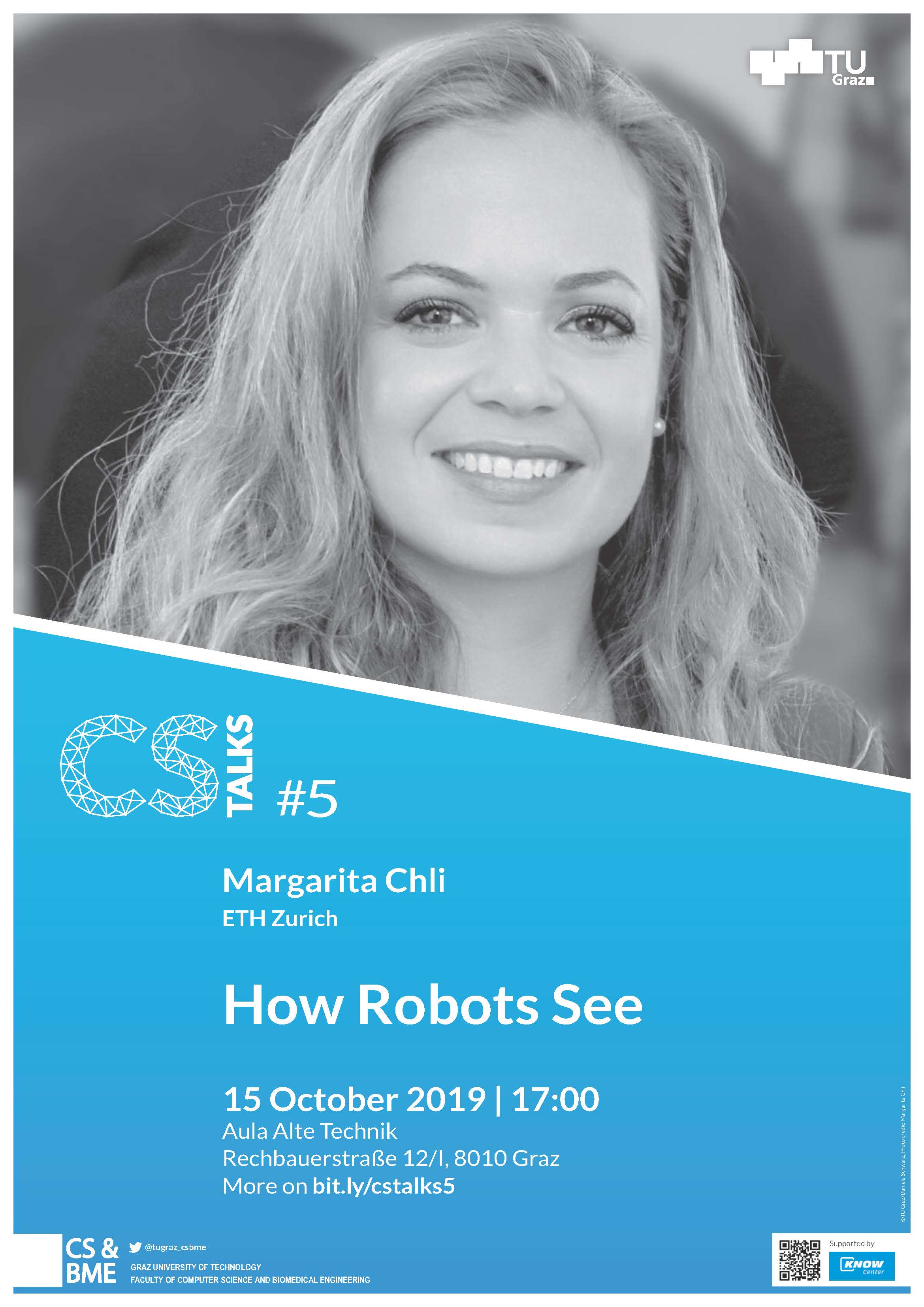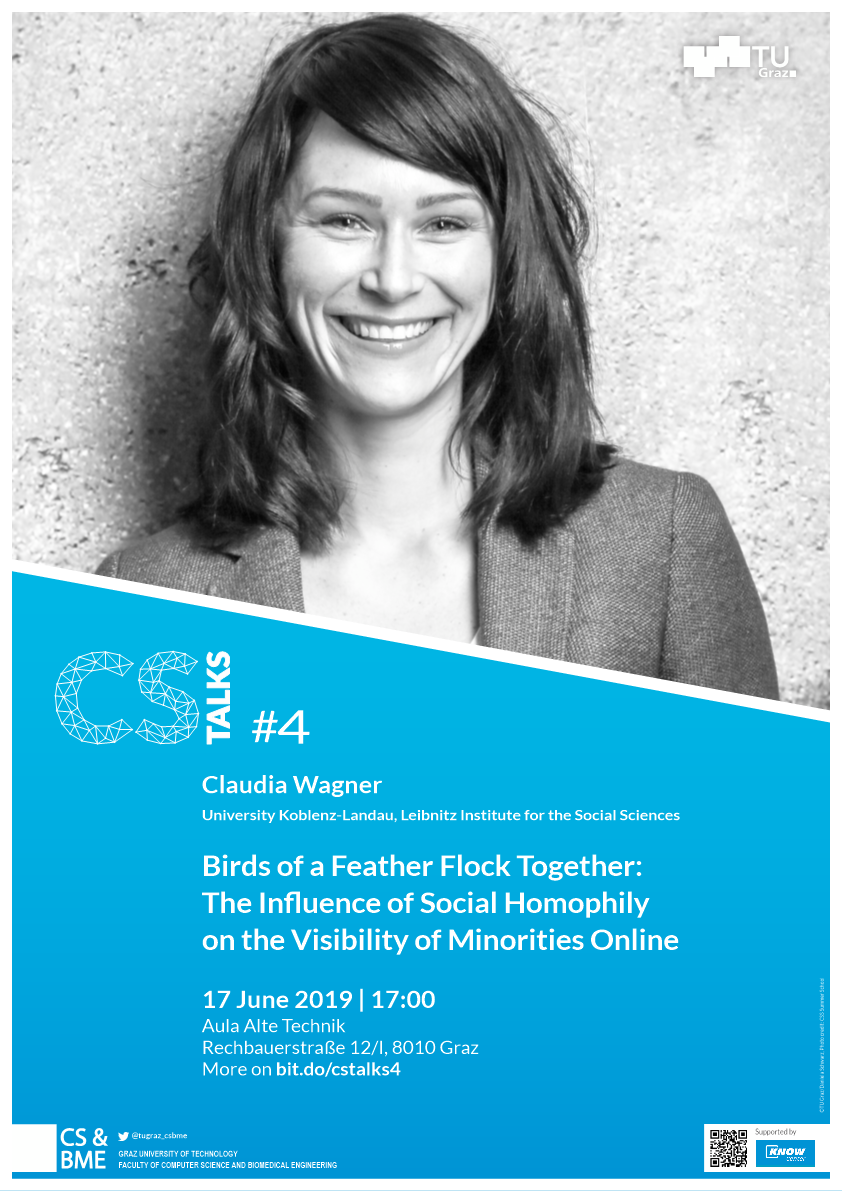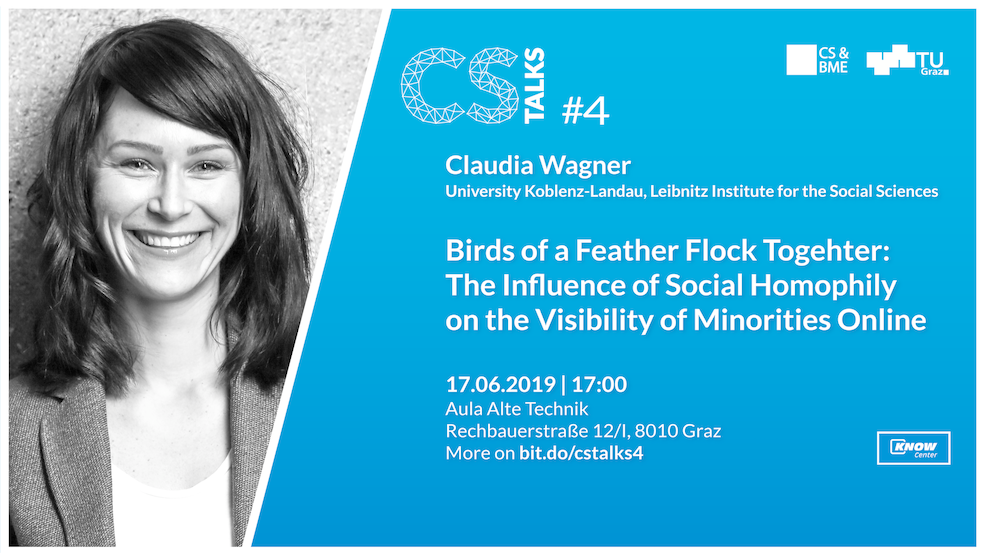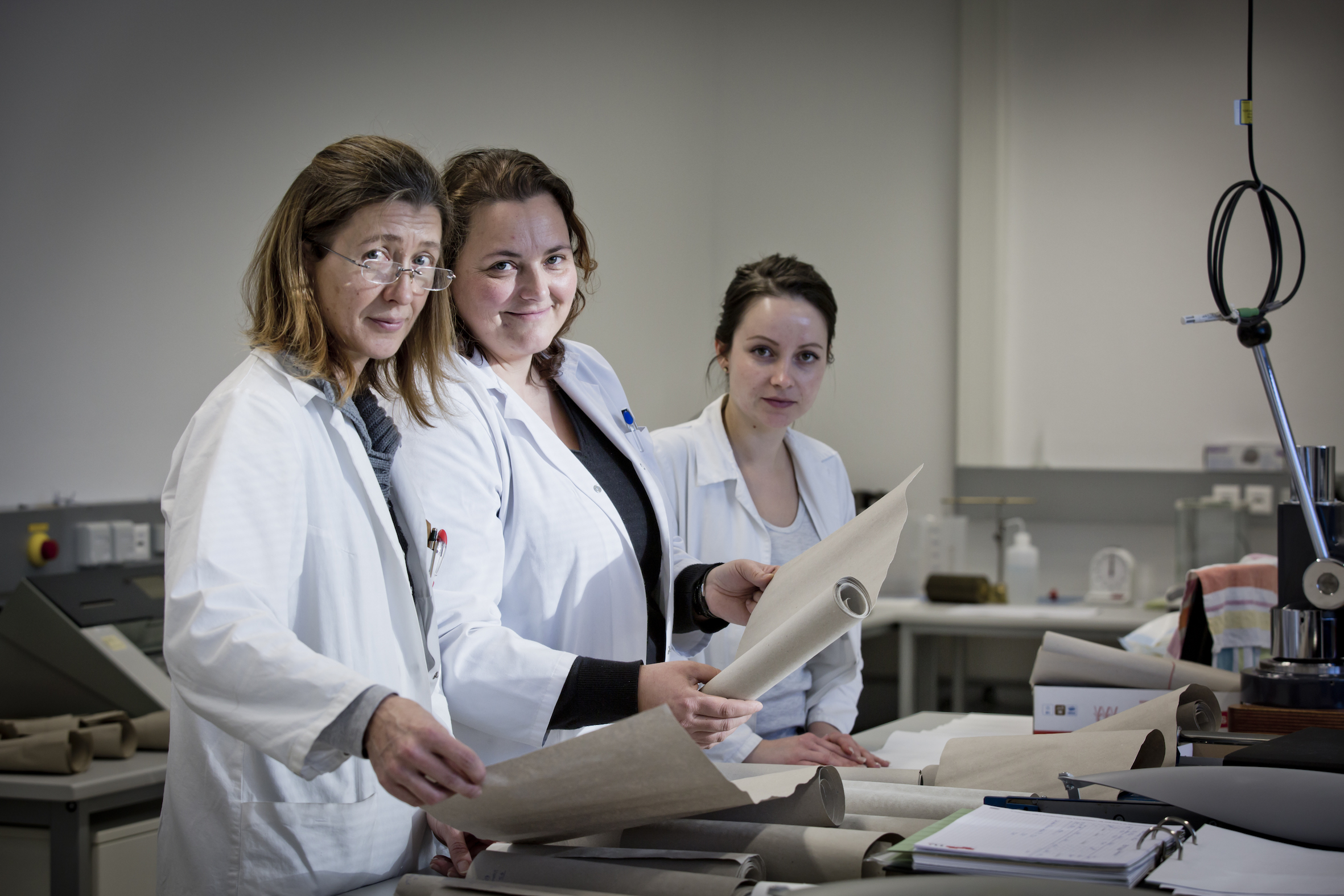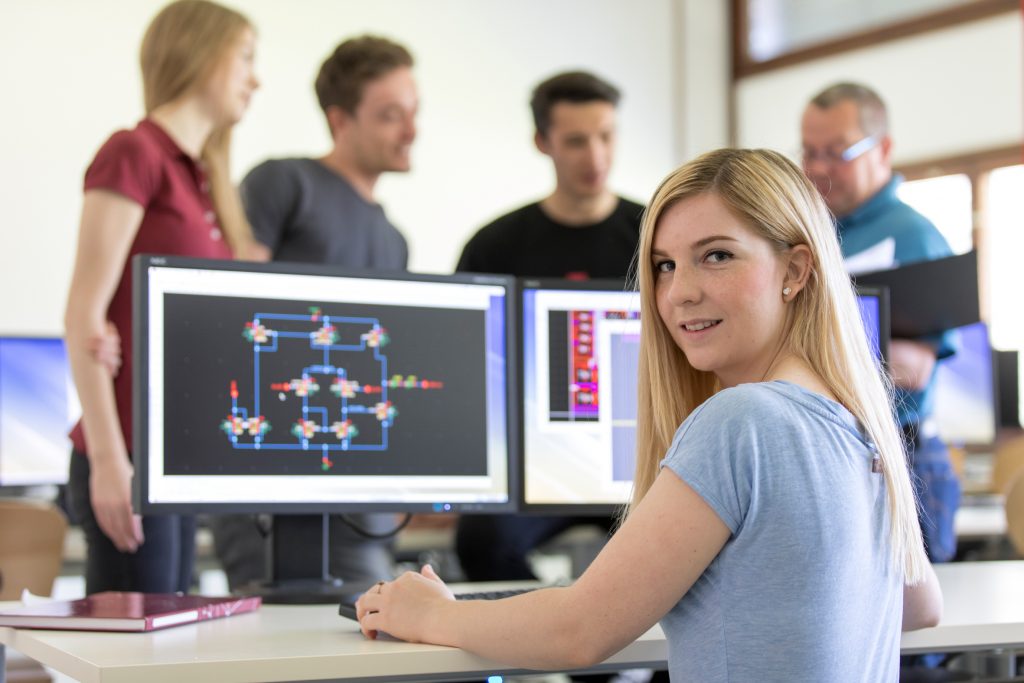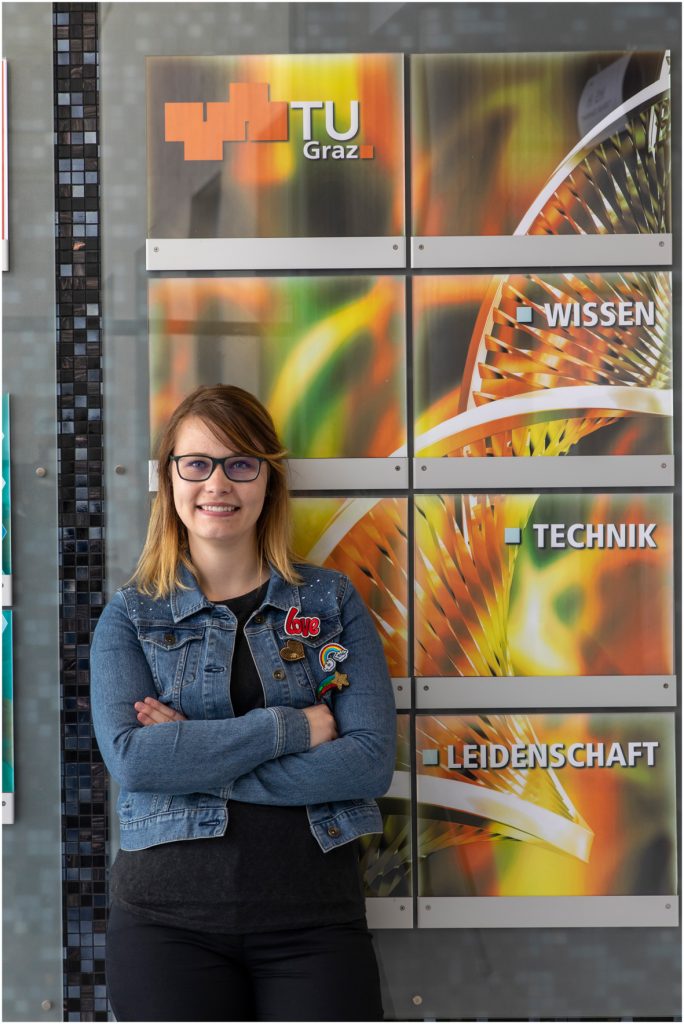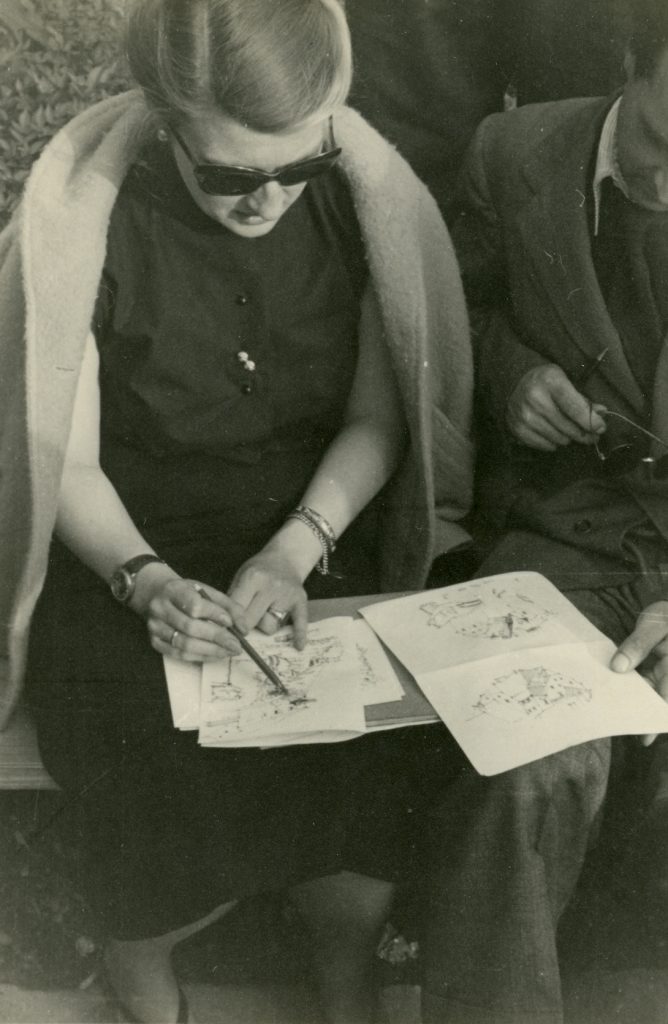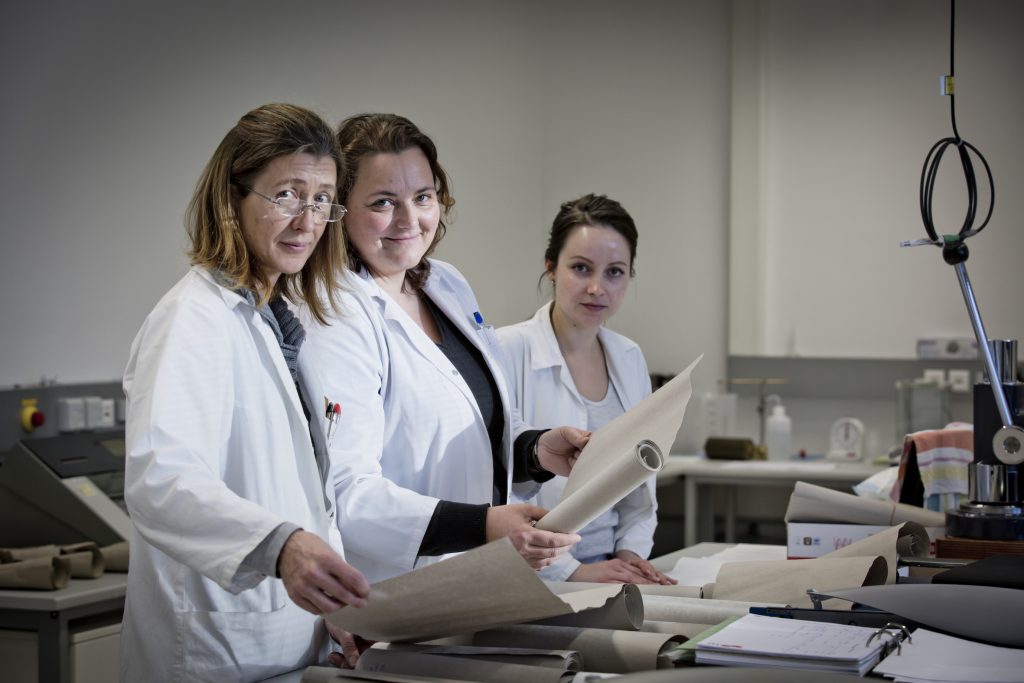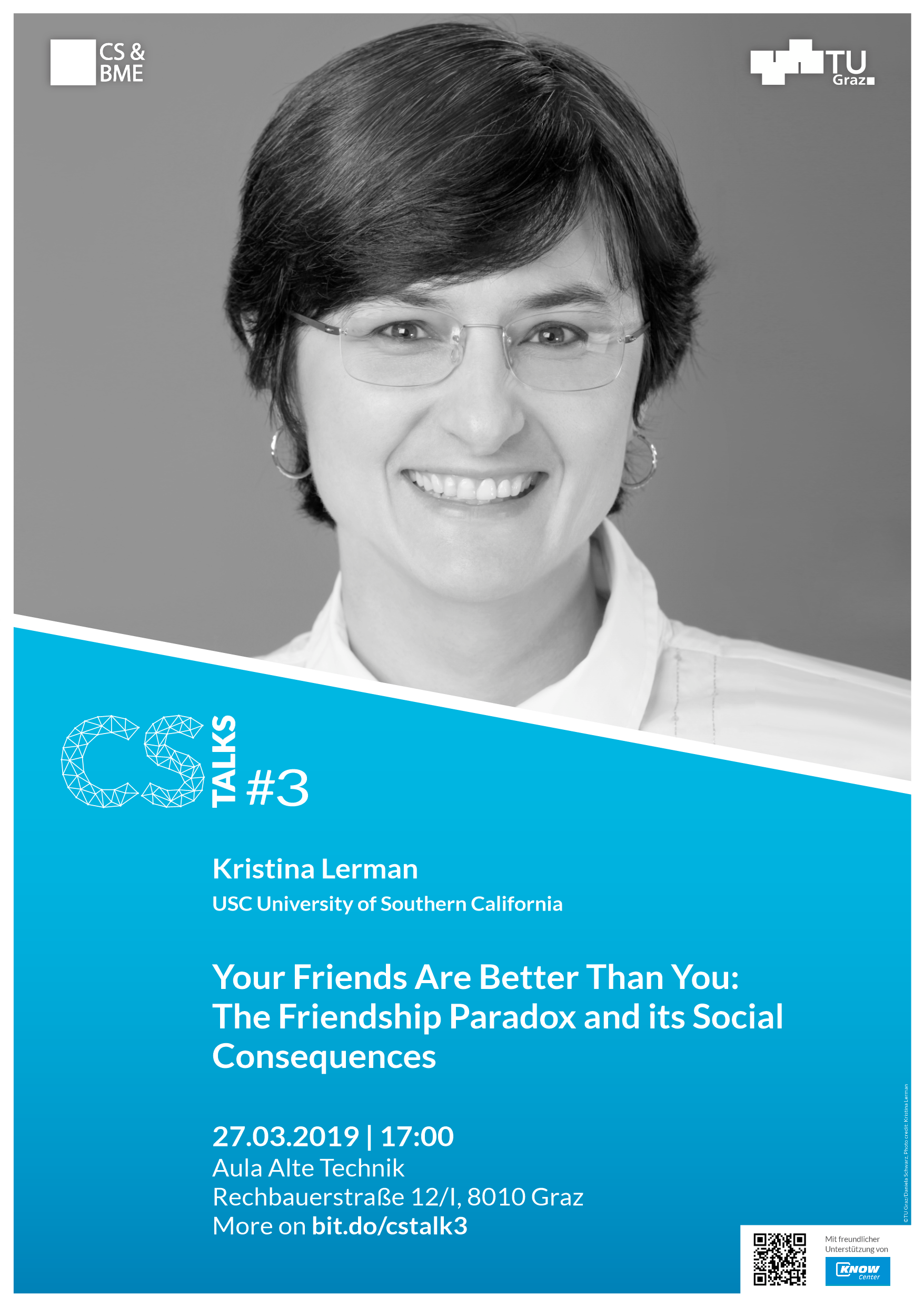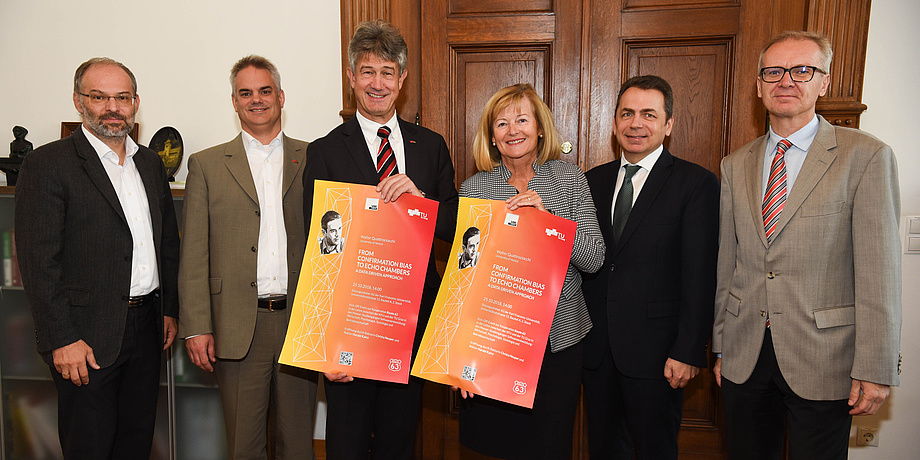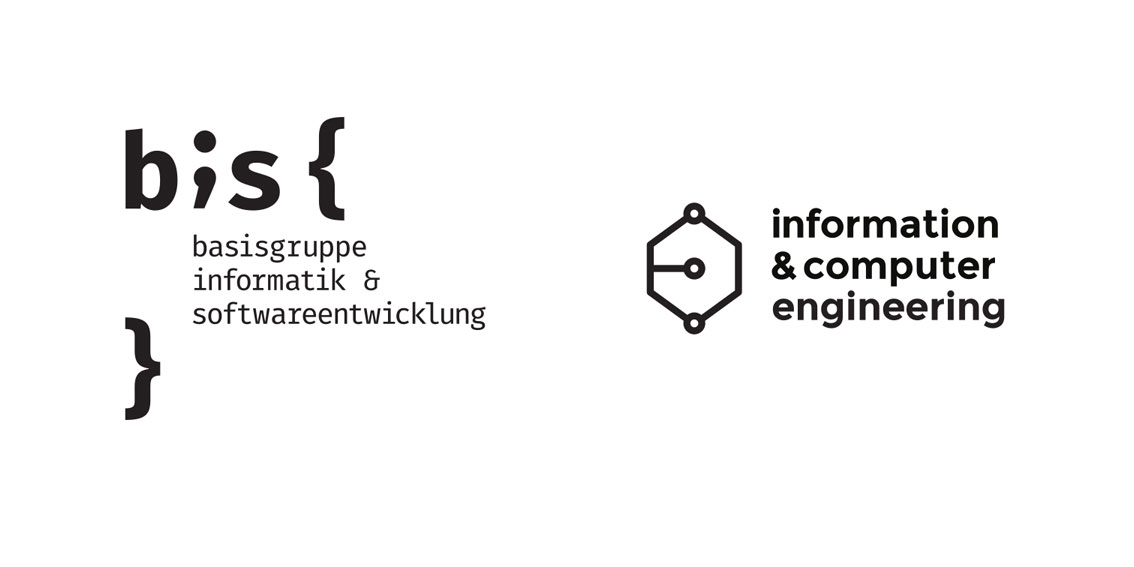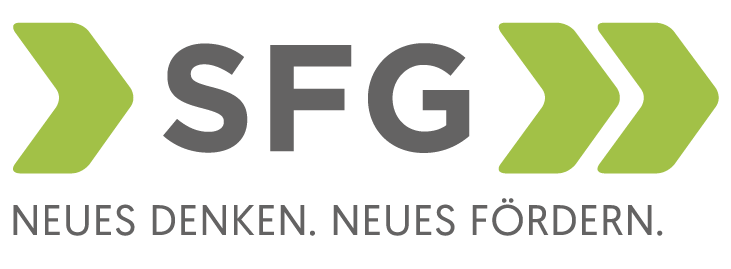CS Talk #6
The Rise of AI and Robotics: How Will It Change the Way We Work and Live?
Charlotte Han (NVIDIA, Deep Learning Marketing Manager)
28 November 2019 | 17:00
Aula Alte Technik
Rechbauerstraße 12, 8010 Graz
Talk is held in English.
Abstract
While the rise of robotics and AI have a huge potential to lift productivity and economic growth, it’s no secret that many jobs, not limiting to the low-skilled positions, will be automated in the near future. It surely means many of us will need to adapt to the life-long learning culture, constantly upgrading our skills, but is it still a good bet to “find a good job” when the modern-day corporations are hiring fewer full-time employees, favoring the more flexible temporary workforce? In this talk, we’ll examine how jobs may no longer shape our full identity, what skills we will need to acquire in this new world, and why it’s ever more important to build, contribute to and thrive in communities – of humans.
Bio
Charlotte Han processes data and computes brand and digital strategies for a living. Thanks to growing up in Asia, becoming American in Silicon Valley, and now living in Europe, she’s learned not take things for granted and to make connections where they may not seem apparent. She’s highly interested in all things tech, especially how technologies can advance human lives. She enjoys networking with the misfits, the rebels, and the troublemakers who aren’t afraid to shake things up and push the boundaries of what is possible. Connect with her on Twitter as @sunsiren or on LinkedIn.
